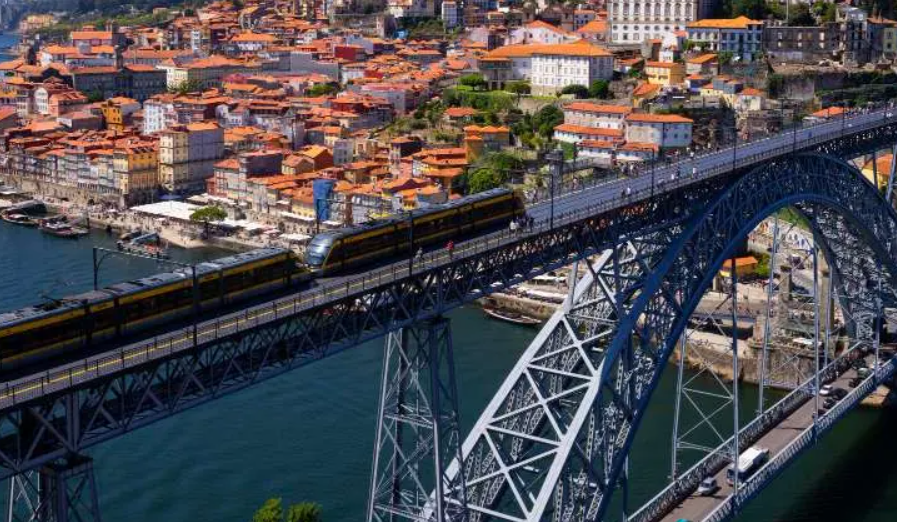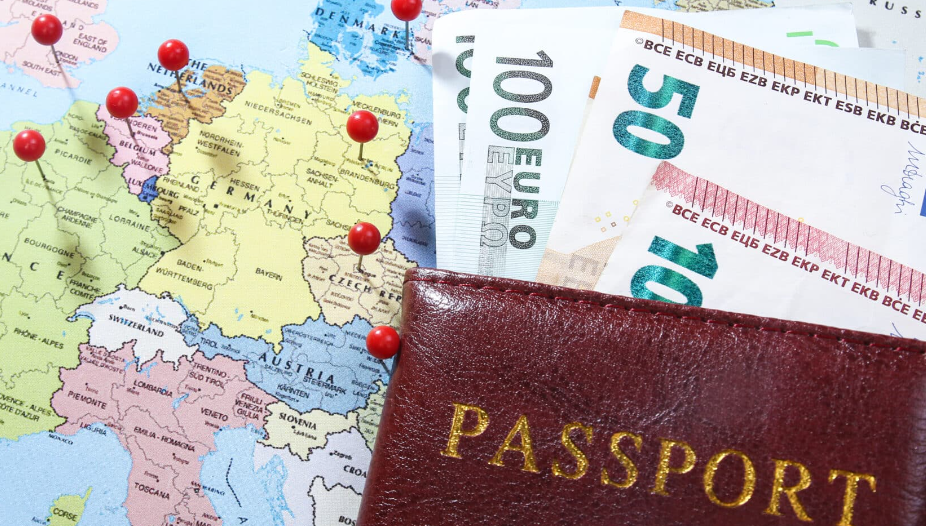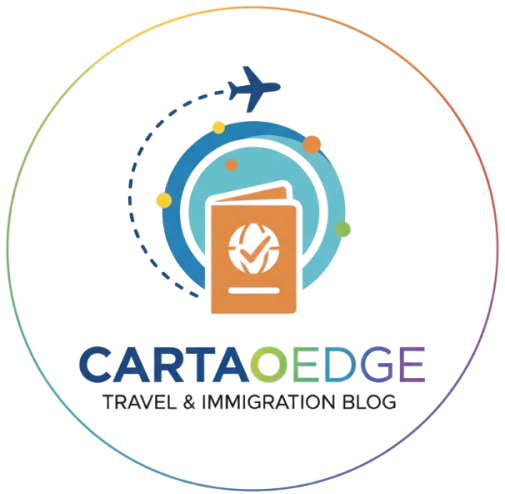From around the world working in Europe sounds like heaven. Whether you are looking to improve employment prospects, gain a quality education or live life in historic European cities, obtaining residency in Europe is your first stop. But there’s a big question: What is the fastest way to do this?
Here’s the good news: There are multiple paths to residency in Europe, and some of them are surprisingly fast. Unlike the immigration that takes years, some European countries have done programmes with talented workers, investors, students and retirees. Some pathways could grant you a residency permit in as little as 60 days while others may take months but include permanent residency benefits.
This guide opens up the quickest and most realistic ways to gain residency in Europe. We will examine golden visa programs, digital nomad permits, job-based residency, student routes and family reunification routes. You will find out which countries have the fastest processing times, what documentation you require and how much money to anticipate investing.
Golden Visa Schemes: The Fast Track To Residency For Investors
Golden visa schemes are one of the quickest methods for gaining residency in Europe, particularly if you have ample savings or investment funds. These programs are effectively for sale, letting you “buy” residency by purchasing real estate or transferring money to local businesses.
Portugal Golden Visa
Despite the changes, Portugal’s golden visa looms large as one of the most popular options. You can achieve residency by investing €500,000 in investment funds or €250,000 in projects related to cultural heritage. On average, the processing time is 6-8 months, with only 7 days a year needed in Portugal to retain your residency.
The beauty of Portugal is that you can apply for permanent residency or citizenship after five years. The program also permits your family to accompany you, such as your spouse, dependent children and even parents.
Spain Golden Visa
Spain provides a no-frills golden visa program attached to property investment. You must invest €500,000 in Spanish real estate and this can be spread across multiple properties. The first permit is issued for two years, and can be extended every five years.
Turn-around times are reasonable, generally around 3-4 months. You don’t even have to live in Spain to keep the visa, so people who want European residency but aren’t quite ready for a permanent move can take advantage of this option.
Greece Golden Visa
Greece offers one of the cheapest golden visa schemes in Europe. The real estate must be valued at a minimum of €250,000 (though it will increase to €400,000-€800,000 in popular zones from 2024). It is also fairly quick in application, as the process will only take roughly 2-3 months.
You don’t need to live in Greece in order to keep your residency, and the permit lasts for five years with a simple renewal process. After seven years of living in residence you can apply for Greek citizenship.
Comparison of Golden Visa Programs
| Country | Min Investment | Processing Time | Residency Requirement | Path to Citizenship |
|---|---|---|---|---|
| Portugal | €250,000-€500,000 | 6-8 months | 7 days/year | 5 years |
| Spain | €500,000 | 3-4 months | None needed | 10 years |
| Greece | €250,000-€800,000 | 2-3 months | No requirement | 7 years |
Digital Nomad Visas: Great For Remote Workers
The trend of remote work is opening opportunities for people to live in Europe and work for companies based anywhere. Digital nomad visas are created with this lifestyle in mind and they’re super quick to get.
Estonia Digital Nomad Visa
Estonia was at the forefront of a European trend for digital nomad visas. You can do all of it online, and you’ll get an approval decision in 15-30 days. You must show you make a minimum of €3,504 a month working remotely or as a freelancer.
The visa is good for one year and you can work anywhere in the Schengen area for 90 days out of any given 180-day period. Estonia’s e-residency program also allows you to easily administer your business online.
Croatia Digital Nomad Visa
Croatia has a digital nomad visa that is good for one year and can be extended once. The application takes roughly 30 days, and you are required to demonstrate about €2,300 per month in income.
Croatia doesn’t tax your foreign income for the first year, and that’s going to be a big financial advantage. It is popular for its stunning coastline, cheap cost of living and increasing expat community.
Portugal D7 Visa (The Income Visa)
Though not exactly a digital nomad visa, the D7 visa of Portugal is ideal for remote workers and freelancers. You must be able to demonstrate passive income at a level of about €760 per month. It takes 2-3 months processing, and you receive a two-year residency permit, but it’s renewable.
Five years later, on a D7 visa, you qualify for permanent residency and the ability to apply for Portuguese citizenship, which gives access to the whole EU.
Residency Through Work: Get a Foot in the Door
If you’ve received a job offer from a European company, getting a work permit can be one of the most straightforward paths. To entice highly skilled labor, many countries have simplified the procedure for obtaining a work permit.
Germany EU Blue Card
One of the quickest paths to permanent residency is through Germany’s EU Blue Card, which caters to highly qualified employees. With a university degree and a job offer with an annual salary of at least €45,300 (less for shortage occupations), you are eligible to apply.
Processing times are generally 4-8 weeks, and you can apply for permanent residence after a mere 33 months (or 21 if you speak German at B1 level). Your family is also eligible to come along as soon as you have the Blue Card.
Netherlands Highly Skilled Migrant Visa
The Netherlands has one of the easiest routes to residency for skilled migrants via their known sponsor. Most of the paperwork is handled by your employer, and you can be approved in as little as 2-4 weeks.
You need a job offer falling within minimum pay guidelines (about €39,000 for under 30s; €56,000 above that). You can apply for permanent residency after five years of legal residence.
Ireland Critical Skills Employment Permit
Ireland’s Critical Skills permit aimed at tech, healthcare and engineering roles. The Critical Skills Employment Permit is predominantly designed to attract highly skilled people into the labour market with the aim of encouraging them to take up permanent residence in the country. The processing time is 8-12 weeks and the permit lasts for two years.
After two years, if you are still working in Ireland, you may apply for permanent residency. The country has a booming tech sector and is an English-speaking environment, making it especially appealing to foreign workers.
Student Visas: The Long-Term Strategy
Student visas may not feel like the “fastest” path at first glance, but they can be a fast track to permanent residency sooner than you’d imagine when you study in the right countries.
Germany Student Visa to Residency
Germany provides free or cheap university tuition, and international students are permitted to work 20 hours a week while studying. After you graduate, you receive an 18-month job-seeking visa to find a job.
After you receive a job offer, you can apply for a Blue Card or an ordinary work permit. The overall timeframe from student visa to permanent residency is possibly as short as 5-6 years, with the advantage of a quality education and work experience along the way.
France Student to Work Transition
In France, graduates may stay for up to one year after receiving their degree in order to seek work. Getting a work permit is an easy transition if you find a job in your field of study.
The processing period of students visa is usually 2-3 months, after residing legally for 5 years and among them studying they can apply for a permanent residency.
Netherlands Orientation Year Visa
The Netherlands also has a one-year orientation visa, which is available for recent graduates of the leading universities around the world. This allows you time to get a job or start a business even without having an offer of employment.
The application process takes around 4-6 weeks and once you receive an offer of employment the change to a work permit is uncomplicated.

Family Reunification: Be with Your Loved Ones
Fast-track residency for those with family in Europe. Fast-track residency may be an option if you have relatives who already hold European citizenship or residence.
Spouse and Partner Visas
It only takes 3-6 months to approve spouse visas in most European nations. You’ll have to demonstrate that your relationship is legitimate with documentation such as marriage certificates, photographs and records of communication.
Countries such as Sweden, Norway and Denmark have well-functioning family reunification programs. If approved, usually you receive a two-year residency permit that can be renewed if the relationship remains in place.
Parent and Dependent Child Visas
The parents and children of European citizens can be brought into the country as family. The processing time depends on each country but usually it ranges from 4 to 8 months.
In some countries like Ireland and the UK there is a system in place where elderly parents who require care can follow, and this makes life easier for families.
Startup and Entrepreneur Visas – Start Your Business
If you have a great idea for a business, many European countries provide fast-track residency programs for entrepreneurs.
France Tech Visa
France’s Tech Visa targets startup founders, employees and investors in the tech ecosystem. For approved projects, the processing timeline is only 2-4 weeks.
You either have to be accepted into an official incubator or accelerator, or your business plan has to be approved by French Tech. The visa lasts up to four years and is a clear pathway to permanent residency.
-
✉️ Confused about interview preparation? See this guide: Common Mistakes to Avoid During Visa Interview
Estonia Startup Visa
The Estonian Startup Visa application can be granted in just 30 days. You must pitch your business idea to a panel, and if approved, you are given a visa for up to 18 months with the potential for renewal.
The digital infrastructure in Estonia enables that to be so easy (it’s all online) and you are welcomed into the startup community with open arms.
Netherlands Startup Visa
The Netherlands provides a one-year startup visa, if you are accepted by a facilitator organization. One year in, if it is thriving, you can apply for a visa to be self-employed.
The processing time is 2-3 months and the country has strong logistics infrastructure and international business climate which is highly advantageous for businessmen.
Retirement and Passive Income Residency
Some European countries have special visa programs that allow retirees and people with passive income.
Portugal Non-Habitual Resident (NHR) Program
Through Portugal’s NHR regime, retirees can realize tremendous tax benefits. You must be able to prove that you earn enough monthly passive income (around €760) to live on.
The visa is processed in 2 months, and you will be given a renewable residence permit valid for two years. Foreign pension can attract 10% flat rate or exemption in certain cases.
Spain Non-Lucrative Visa
The non-lucrative visa of Spain is excellent for retirees or persons having an income from investments. At least €27,000 in savings or passive income of about €2,000 monthly.
Processing time: 3-6 months. You are not allowed to work in Spain on this visa but you must have travel insurance, however you can enjoy the nice healthcare of Spain and its clement weather.
What You’ll Need: Requirements and Documents
Whether you take one route or another, some documents seem to be universally asked while applying for residency in Europe.
Essential Documents:
- Passport (generally should be valid at least 6 months beyond intended stay)
- Birth certificate with apostille
- Background check from your home country
- Proof of health insurance
- Proof of financial means
- Medical certificate
- Passport-sized photographs
Other Papers (as per the type of visa being applied for):
- Employment contract and offer letter
- University acceptance letter
- Marriage/birth certificates for family visas
- Investment documents and bank statements
- Business plan for entrepreneur visas
- Golden visa property purchase papers
Processing Time Comparison Chart
| Type of Residency | Fastest Country | Average Processing Time | Initial Validity |
|---|---|---|---|
| Golden Visa | Greece | 2-3 months | 5 years |
| Digital Nomad | Estonia | 15-30 days | 1 year |
| Work Permit | Netherlands | 2-4 weeks | Varies |
| Student Visa | France | 2-3 months | Duration of studies |
| Family Reunification | Sweden | 3-6 months | 2 years |
| Entrepreneur Visas | France Tech Visa | 2-4 weeks | Up to 4 years |
Tricks To Accelerate Your Application
Get Your Documents Together Early: Begin collecting documents months before you plan to apply. It can also take time to get apostilles, translations and background checks.
Seek Professional Assistance: Immigration attorneys and consultants are aware of the quirks. They can prevent mistakes that lead to delays.
Apply During Slower Periods: A lot of people apply in the summer and fall. A winter or early spring application may be processed more quickly.
Be Complete and Accurate: An incomplete application is the biggest culprit for delays. Double-check everything before submitting.
Follow Up: Don’t just send off and wait. Get in touch with the embassy/immigration office to verify that your application is moving forward.
Multiple Pathways: Don’t keep all your eggs in one basket. If you have the option of applying for several types of visas, submit your application for the fastest visa first and as quickly as possible.
Cost Breakdown: What To Expect
Residency in Europe costs much more than just the visa fees. Here’s a realistic breakdown:
- Golden Visa Programmes: €250,000 – €500,000 (investment) + €5,000 – €10,000 (fees / legal costs)
- Digital Nomad Visas: €80 to €200 (application fee) + €1,000 to €2,000 (health insurance and paperwork)
- Work Permits: €100 – €500 (application fee) + possible relocation costs
- Student Visas: €60 – €150 (fee) + €8,000 – €15,000 (annual cost of living and tuition)
- Entrepreneur Visa: €200 – €500 (application fee) + Business Funds Investments
Common Mistakes To Avoid
Underestimating Financial Needs: Nations are looking to make sure you won’t be a drain on their social safety net. Only spend money that can be replaced or is in excess of the funds required.
Failure to Meet Language Requirements: Some programs require a minimal level of language proficiency. Start learning the language early.
Picking the Wrong Visa Category: Be sure you know the limits. For instance, a non-lucrative visa doesn’t give you the ability to work, and a work permit requires that you already have one.
Missing a Deadline: Many residence permits have renewal deadlines. Failure to keep up with these can lead to a loss of your residency status.
Not Thinking About Tax: When you become a tax resident in any European country, implications can be material. Speak with a tax professional before you finalize your decision.
After You Obtain Residency: Next Steps
Securing your residency permit is just the start. Here’s what happens next:
Register With Local Authorities: Most countries require you to register with the local municipality within a certain number of days upon arrival.
Get a Tax Number: You will need this for banking, employment and a variety of other services.
Get Bank Account: An local bank account makes life much easier and it can be required for many things.
Buy Health Insurance: Some countries offer free public health, whereas private insurance is mandatory initially.
Learn the Language: Even if it’s not necessary, knowing some of the local language will enhance your standard of living and integration into society.
Plan for Permanent Residency: Many temporary permits allow for permanent residency after 5 years. Keep count of the days you live in each place, and meet all requirements.
For more comprehensive information on European immigration policies, check the official EU portal.

Frequently Asked Questions
How long does it take to get permanent residency in Europe?
5 years of uninterrupted legal residence is a requirement in most European countries. But several countries have faster tracks (from as few as 21-33 months in Germany under an EU Blue Card) while others have a 10-year requirement like Switzerland.
Can I reside in the other countries of Europe with residency in one country?
If you have a residence in one of the Schengen countries, you may travel without restriction within the Schengen area for a maximum period of up to 90 days every six months. But you can’t live permanently in another country without separate permission. EU citizenship on the other hand means you can live anywhere in the EU.
Which European country is the easiest to get residency?
Greece and Portugal have among the easiest golden visa programs for investors. Estonia and Croatia are the fastest for digital nomads. Workers in the Netherlands and Germany have already been given easier access. That really depends on your own circumstances, and qualifications. The “easiest” country will not be the same for everyone.
Do I have to know the local language to obtain residency?
Foreign language requirements depend on the type of visa, as well as the country. The vast majority of temporary residence permits (work permits, student visas, golden visas) do not require language ability at the outset. However, applications for permanent residency and citizenship typically need A2 to B1 level in the language.
Can my family come with me?
Immediate family (spouse and dependent children) may be permitted for most residencies. Others will let you take parents and adult children, too. Relatives receive residence permits of the same validity as the main applicant.
How much money should I have in the bank?
The income requirement differs greatly depending on the country and visa type. Digital nomad visas might require €2,000-€3,500 income every month. Student visas need €800-€1,200 monthly. For golden visas, people must invest between €250,000-€500,000. Non-lucrative visas require about €25,000-€30,000 in savings per year.
Is it possible to work while studying on a student visa in Europe?
Most European countries permit foreign students to work part-time (up to 20 hours a week while school is in session; full-time during semester breaks). A few countries such as Germany, the Netherlands and France are especially lenient to students. This can help defray living expenses and offer valuable work experience.
What if my visa application is refused?
You’ll receive a written explanation if your application is denied. Normally, you have the right to appeal within 30-60 days. The cause of the rejection should be determined. One of the most common reasons is that your application was not well-documented, or you lack funds. You may reapply after you have corrected these matters.
Final Thoughts
Getting residency in Europe is more straightforward than many assume. If you’re a skilled worker, an entrepreneur, a student, an investor or retiree, there is likely a path that suits your circumstances. The trick is to research the best country and program for your objectives, qualifications and timeline.
The quickest paths — such as digital nomad visas and some work permits — can have you set up in Europe within weeks. Golden visa programs are not a brief option, though they offer great permanent security. Student visas take time to acquire but provide access to education and employment in the meantime.
And remember that residency is often only the first step on the path to permanent residency or citizenship. Select a country that you can imagine living in for the long haul, not necessarily the one with the quickest processing time. Think about what you value, be it language, culture, job market, climate or cost of living.
Now is a good time to start getting




